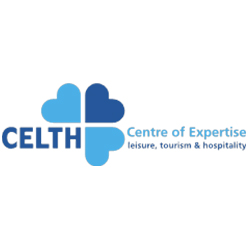Leisure constraints affecting participation can be divided into intrapersonal, interpersonal, and structural constraints. Only a few studies in the event industry have investigated the role of leisure constraints. These studies show different effects of leisure constraints on participation. The purpose of this article is to examine the influence of leisure constraints on revisit intention regarding music festivals. This study is of quantitative nature and utilizes survey research. A sample of 1,063 respondents was used within the analyses, measuring the influence of perceived constraints on revisit intention. The results show that intrapersonal constraints (a lack of importance and interest) and structural constraints (travel time, a lack of time, costs, and a lack of satisfaction with the festival area) significantly influence revisit intention. In line with results from other leisure industries, intrapersonal constraints show the strongest effects. Interpersonal constraints do not affect revisit intentions. Music festivals should ideally maintain a high level of engagement with the visitors throughout the year to ensure continuous involvement.
MULTIFILE

The impacts of tourism on destinations and the perceptions of local communities have been a major concern both for the industry and research in the past decades. However, tourism planning has been mainly focused on traditions that promote the increase of tourism without taking under consideration the wellbeing of both residents and visitors. To develop a more sustainable tourism model, the inclusion of local residents in tourism decision-making is vital. However, this is not always possible due to structural, economic and socio-cultural restrictions that residents face resulting to their disempowerment. This study aims to explore and interpret the formal processes around tourism decision-making and community empowerment in urban settings. The research proposes a comparative study of three urban destinations in Europe (The Hague in the Netherlands, San Sebastian in Spain and, Ioannina in Greece) that experience similar degree of tourism growth. The proposed study will use a design-based approach in order to understand tourism decision-making and what empowers or disempowers community participation within the destinations. Based on the findings of primary and secondary data, a community empowerment model will be applied in one the destinations as a pilot for resident engagement in tourism planning. The evaluation of the pilot will allow for an optimized model to be created with implications for tourism planning at a local level that can contribute to sustainable destinations that safeguard the interests of local residents and tourists.
The Academy for Leisure & Events has always been one of the frontrunners when it comes to the development, design and implementation of cultural tourism and creative industry business models as well as lifelong learning programmes.These programmes are attended by a variety of leisure and tourism professionals, including public authorities in leisure, culture and nature fields.The CULTURWB project addresses the need for strengthening the development of the cultural tourism industry.The experts from BUas together with the other project partners have utilised diverse research methodologies (marketing and branding, strategy business planning, digital tourism, sustainable development, strategy and action plan implementation, etc.) to develop and pilot a toolkit for Lifelong Learning courses in the field of cultural tourism and heritage. They have also designed and implemented a master’s programme in the WB countries and created an online platform for communication between stakeholders, industry leaders, managers, workforce, and academia.PartnersHochschule Heibronn, FH Joanneum Gesellschaft, World University Service - Österreichisches Komitee (WUS Austria), Dzemal Bijedic University of Mostar (UNMO), University of East Sarajevo (UES), The University of Banja Luka (UBL), University of NIS (UNI), University of Montenegro (UoM), Sarajevo Meeting of Cultures (SMOC), rovincial Institute for the Protection of Cultural Monuments (PZZZSK), Tourism Organisation of Kotor Municipality (TO Kotor)
The IMPULS-2020 project DIGIREAL (BUas, 2021) aims to significantly strengthen BUAS’ Research and Development (R&D) on Digital Realities for the benefit of innovation in our sectoral industries. The project will furthermore help BUas to position itself in the emerging innovation ecosystems on Human Interaction, AI and Interactive Technologies. The pandemic has had a tremendous negative impact on BUas industrial sectors of research: Tourism, Leisure and Events, Hospitality and Facility, Built Environment and Logistics. Our partner industries are in great need of innovative responses to the crises. Data, AI combined with Interactive and Immersive Technologies (Games, VR/AR) can provide a partial solution, in line with the key-enabling technologies of the Smart Industry agenda. DIGIREAL builds upon our well-established expertise and capacity in entertainment and serious games and digital media (VR/AR). It furthermore strengthens our initial plans to venture into Data and Applied AI. Digital Realities offer great opportunities for sectoral industry research and innovation, such as experience measurement in Leisure and Hospitality, data-driven decision-making for (sustainable) tourism, geo-data simulations for Logistics and Digital Twins for Spatial Planning. Although BUas already has successful R&D projects in these areas, the synergy can and should significantly be improved. We propose a coherent one-year Impuls funded package to develop (in 2021): 1. A multi-year R&D program on Digital Realities, that leads to, 2. Strategic R&D proposals, in particular a SPRONG/sleuteltechnologie proposal; 3. Partnerships in the regional and national innovation ecosystem, in particular Mind Labs and Data Development Lab (DDL); 4. A shared Digital Realities Lab infrastructure, in particular hardware/software/peopleware for Augmented and Mixed Reality; 5. Leadership, support and operational capacity to achieve and support the above. The proposal presents a work program and management structure, with external partners in an advisory role.
Centre of Expertise, onderdeel van Breda University of Applied Sciences, NHL Stenden Hogeschool, HZ University of Applied Sciences
